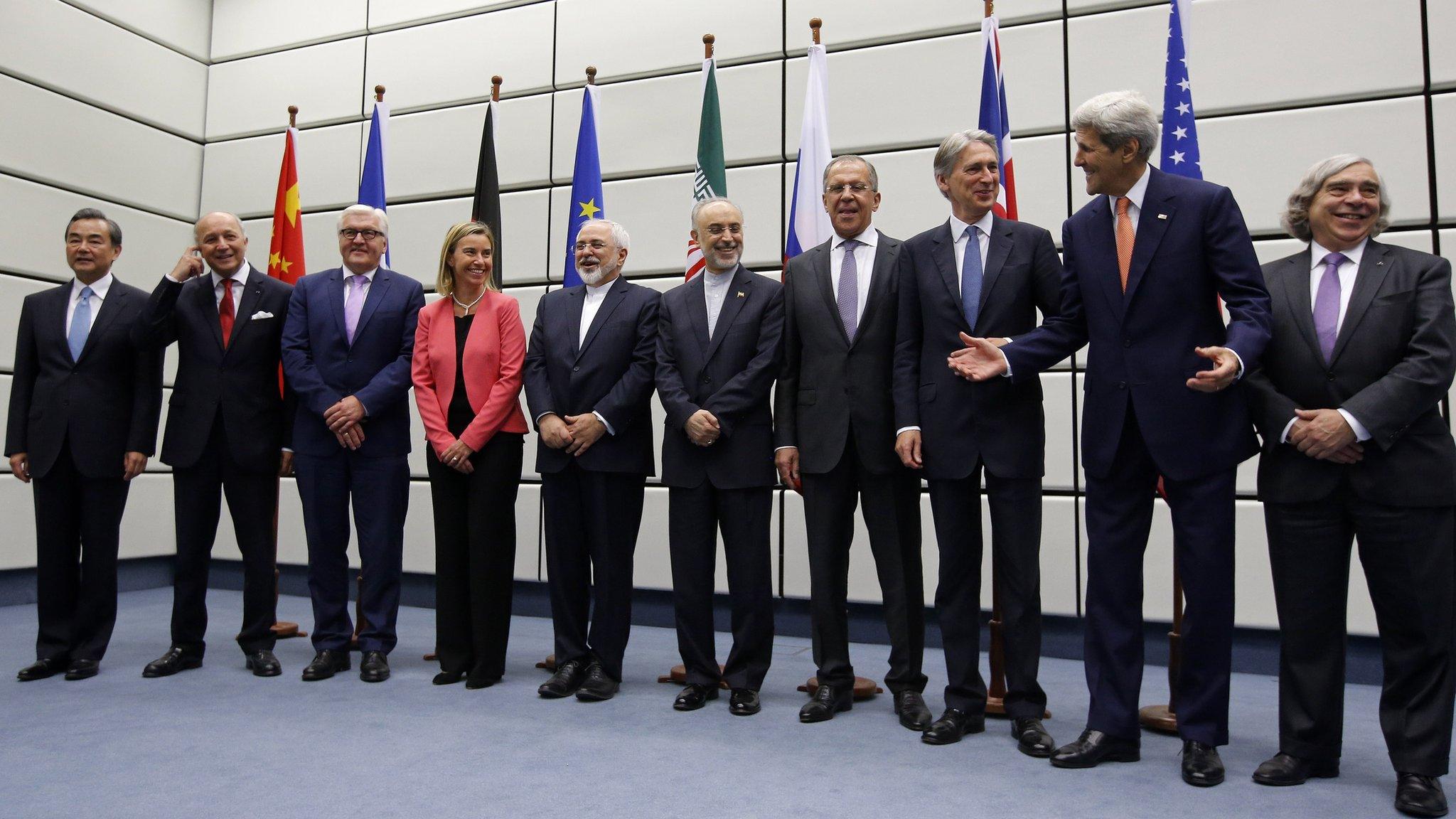US and Iranian men released in prisoner swap
- Published
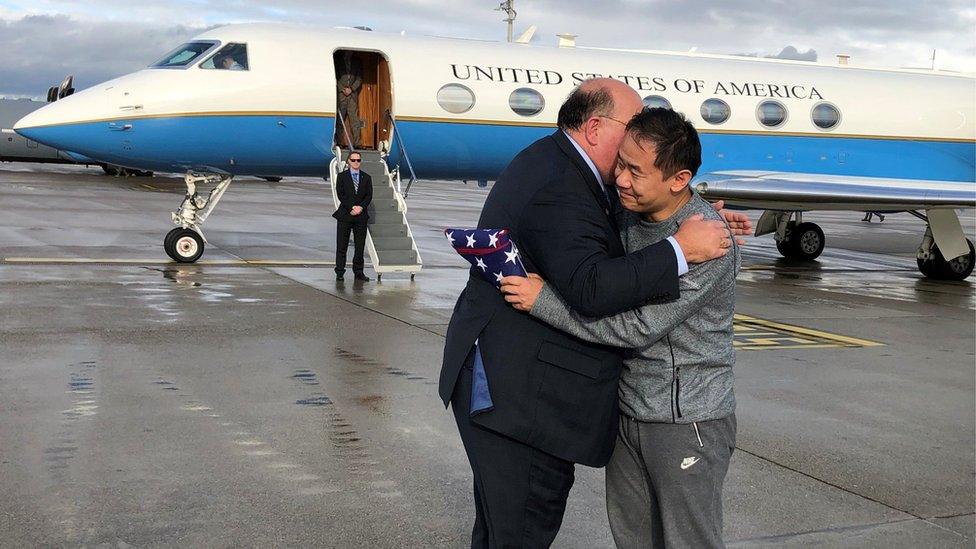
Xiyue Wang, who was held in Iran for three years, was greeted by US Ambassador to Switzerland Edward McMullen
The US and Iran have conducted a prisoner swap in a rare sign of co-operation between the two countries.
The exchange involved a Chinese-American researcher convicted of spying in Iran and an Iranian scientist held by the US. Both deny wrongdoing.
Iran's foreign minister said he was glad as he announced the exchange.
Hours later, US President Donald Trump tweeted: "Thank you to Iran on a very fair negotiation, external. See, we can make a deal together!"
Who were the prisoners?
Xiyue Wang was arrested in Iran in 2016 for "collaborating with foreign governments".
Massoud Soleimani, a stem cell expert, was arrested at a Chicago airport last year. He was accused violating trade sanctions by trying to export biological material to Iran.
Iran and the US have had an increasingly strained relationship in recent years and share no diplomatic links.
Both have thanked the Swiss government for its assistance as an intermediary facilitator.
What happened?
Mr Wang was flown in a Swiss government plane from Tehran to Zurich, and then to Ramstein Air Base in Germany, where he will undergo medical check-ups before heading home.
Mr Soleimani was also flown to Zurich and then on to Iran.
Iranian Foreign Minister Mohammad Javad Zarif tweeted photos of himself with Mr Soleimani after his release.
He was the first to announce the news, via a tweet. "Glad that Professor Massoud Soleimani and Mr Xiyue Wang will be joining their families shortly," he wrote.
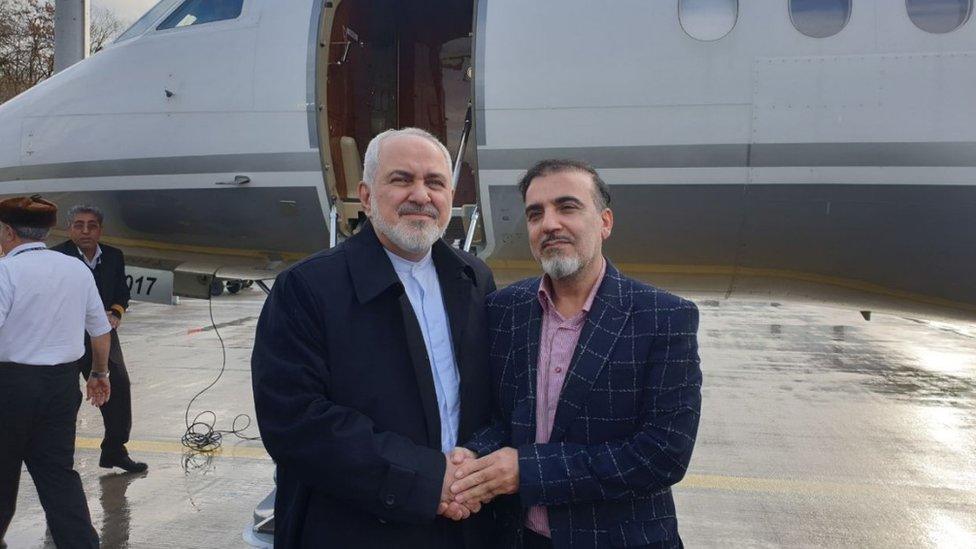
Massoud Soleimani, right, with Iranian Foreign Minister Javad Zarif after his release
In a formal statement, US President Donald Trump said Mr Wang had been "held under the pretence of espionage".
"Freeing Americans held captive is of vital importance to my Administration, and we will continue to work hard to bring home all our citizens wrongfully held captive overseas," the statement said.
Allow X content?
This article contains content provided by X. We ask for your permission before anything is loaded, as they may be using cookies and other technologies. You may want to read X’s cookie policy, external and privacy policy, external before accepting. To view this content choose ‘accept and continue’.

Hua Qu, Mr Wang's wife, wrote in statement: "Our family is complete once again. Our son Shaofan and I have waited three long years for this day and it's hard to express in words how excited we are to be reunited with Xiyue.
"We are thankful to everyone who helped make this happen."
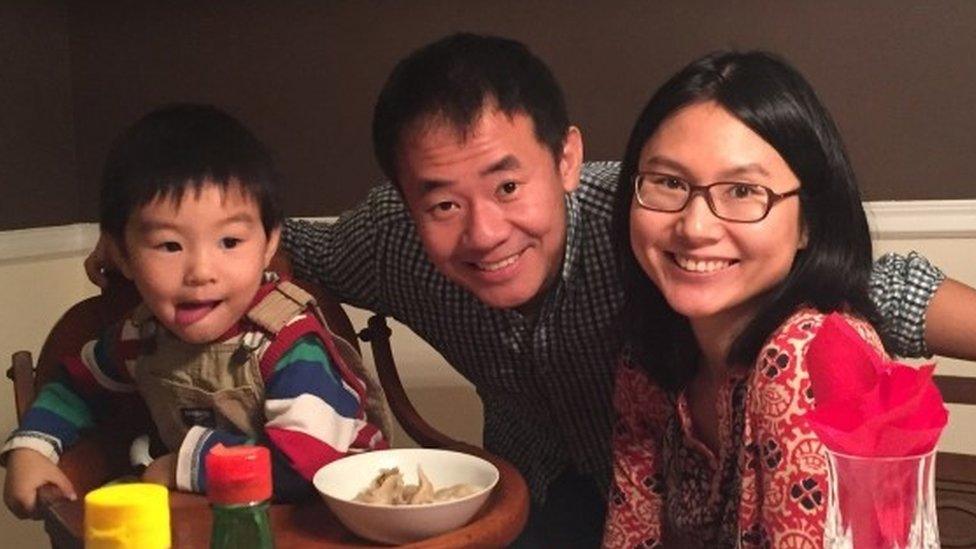
Xiyue Wang (centre) with his wife and son before his arrest
Princeton University, where Mr Wang was studying as a postgraduate, said in a statement it was "overjoyed" with the news of his release and was looking forward to "welcoming him back to campus".
What were the men accused of?
Mr Wang was arrested in Iran in August 2016 as he was leaving the country.
He had been doing research in Iran for a university dissertation and was accused of seeking to gather "highly confidential articles" for US and British academic institutions. He was sentenced to 10 years in jail for spying.
Mr Soleimani was detained in October 2018 on accusations of attempting to export biological materials to Iran in violation of trade sanctions on the country over its nuclear program.
What is the background?
US-Iran tensions have risen significantly in the last two years.
After President Donald Trump took power, the US pulled out of a 2015 treaty that aimed to limit Tehran's nuclear programme.
Tehran has always insisted its nuclear programme is peaceful, but the US voiced concerns about potential weapon building.
President Trump also reinstated sanctions on Iran, which have led to its currency plummeting and inflation soaring.
Iran has recently been hit by major protests over rising petrol prices, which are partly linked to the US sanctions.
Feeling the squeeze: Iran sanctions explained
- Published3 September 2017
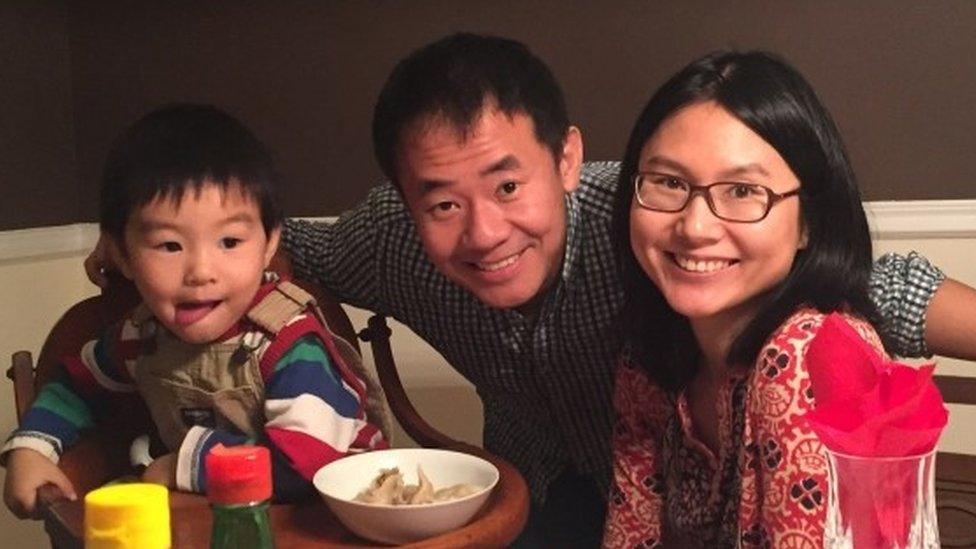
- Published19 September 2023
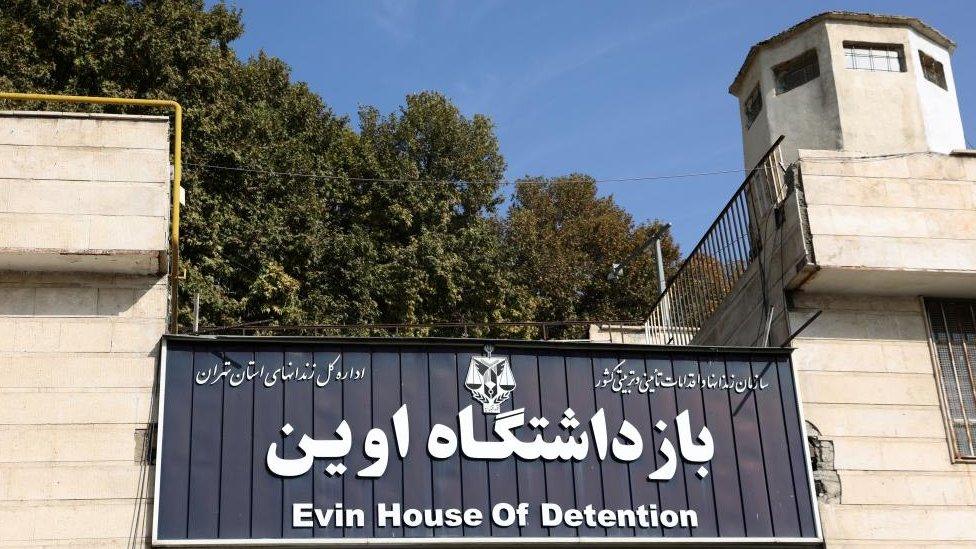
- Published6 January 2020
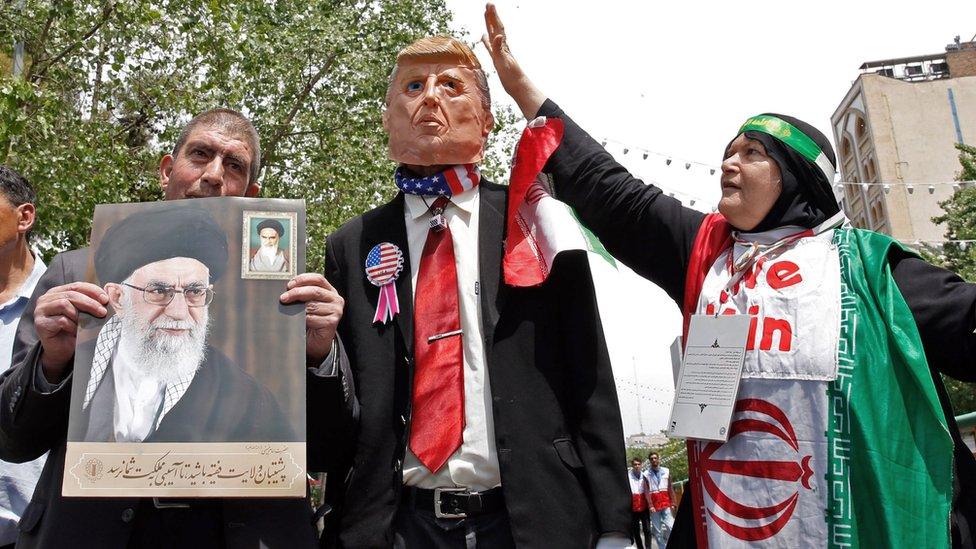
- Published16 November 2021
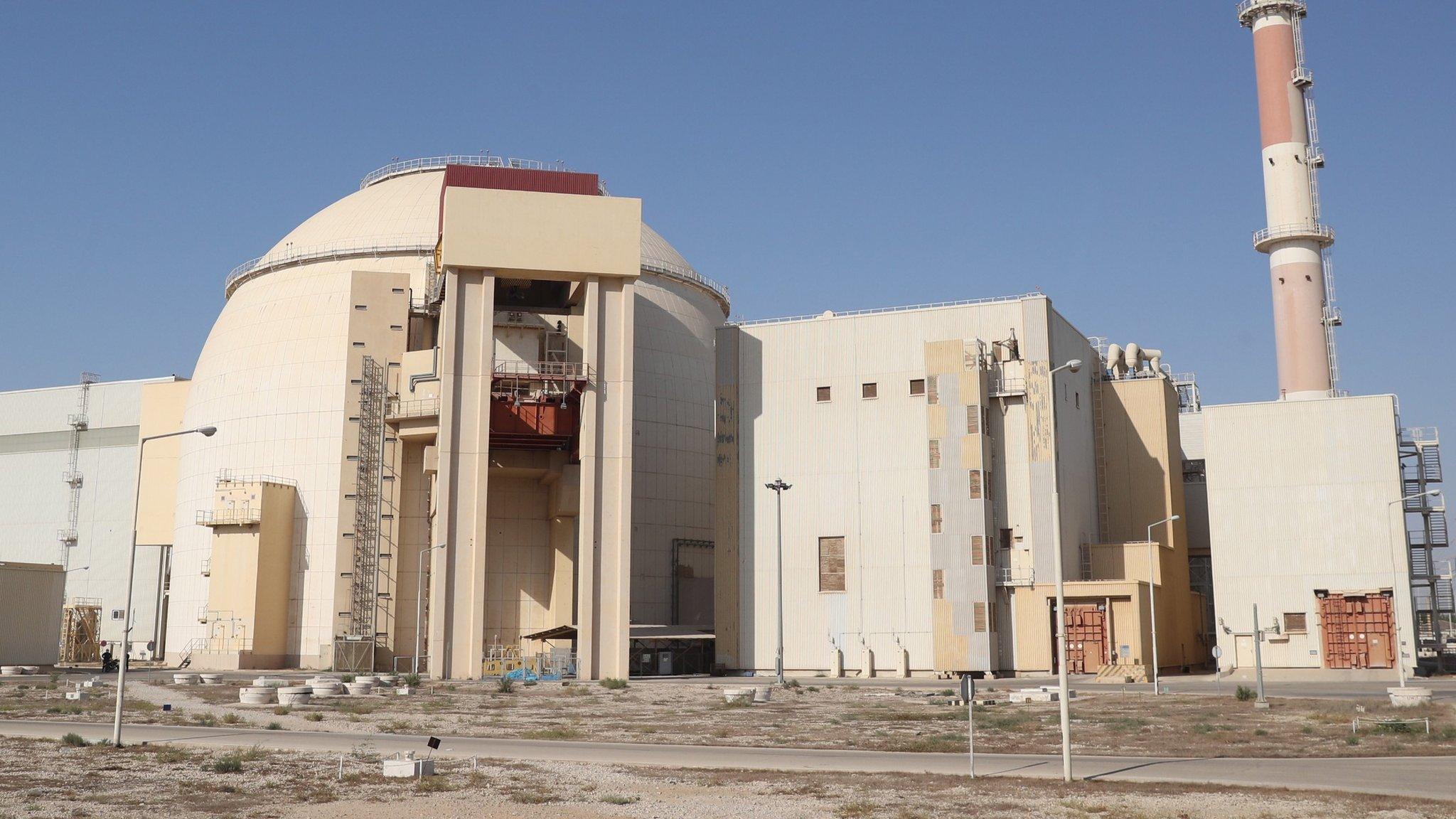
- Published9 December 2019
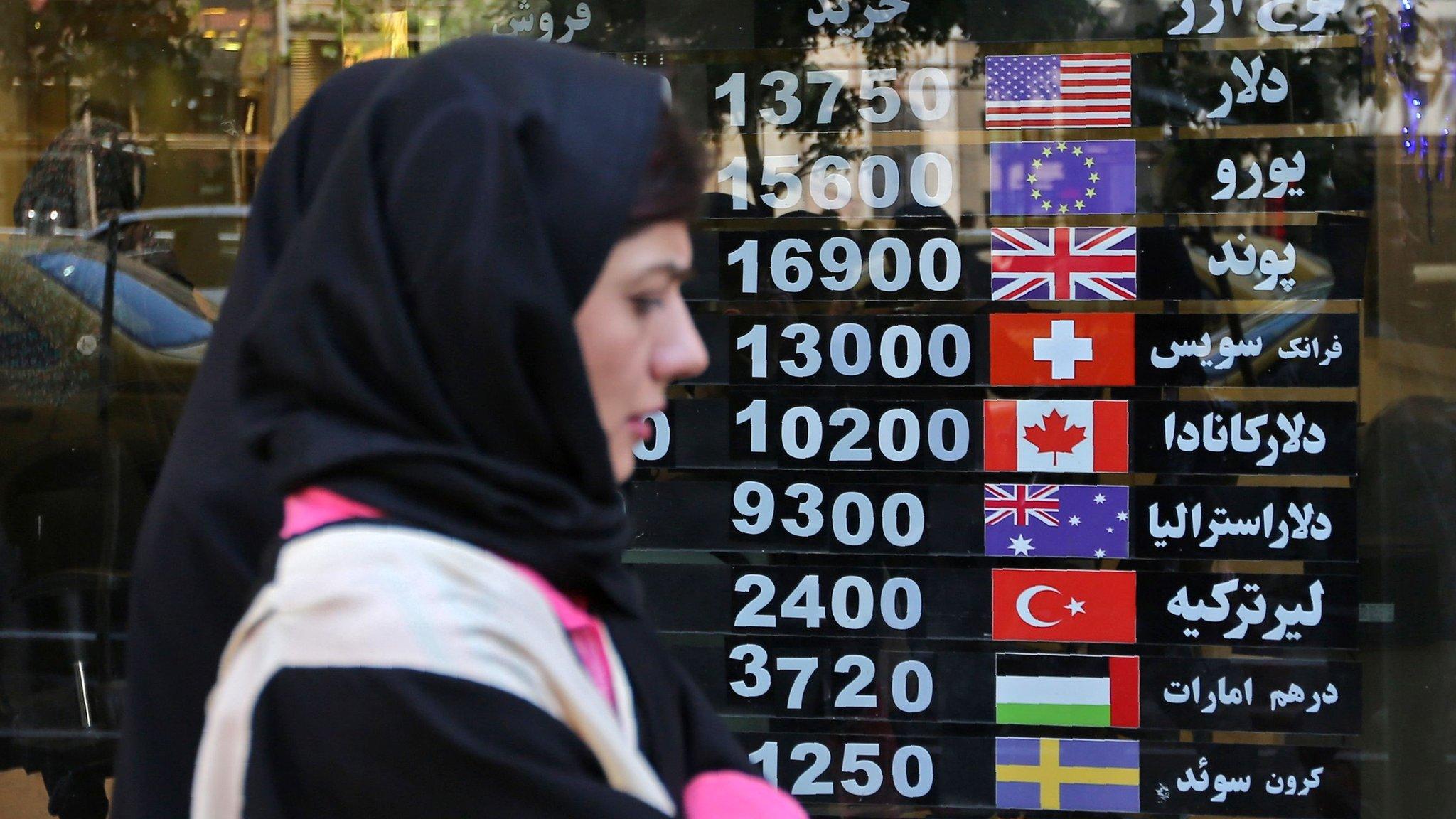
- Published5 November 2018
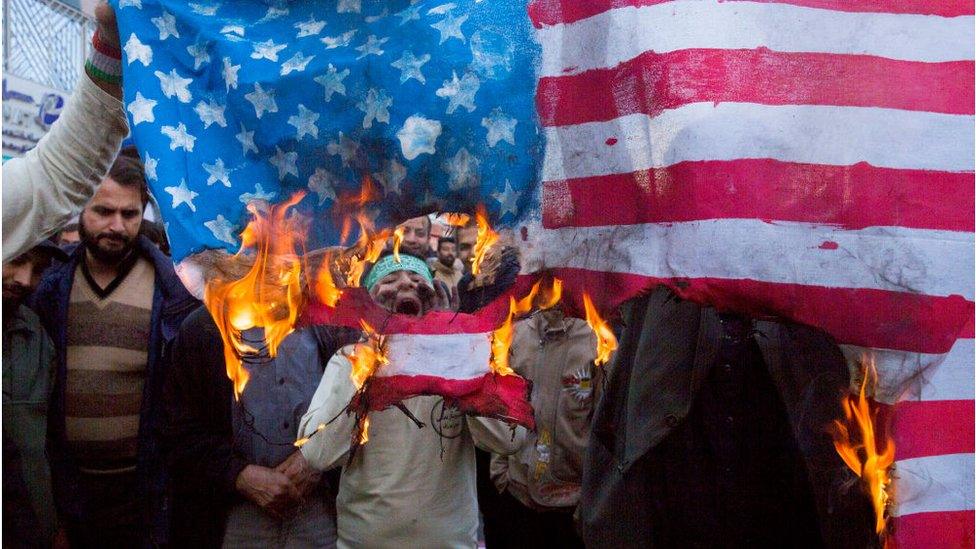
- Published23 November 2021
